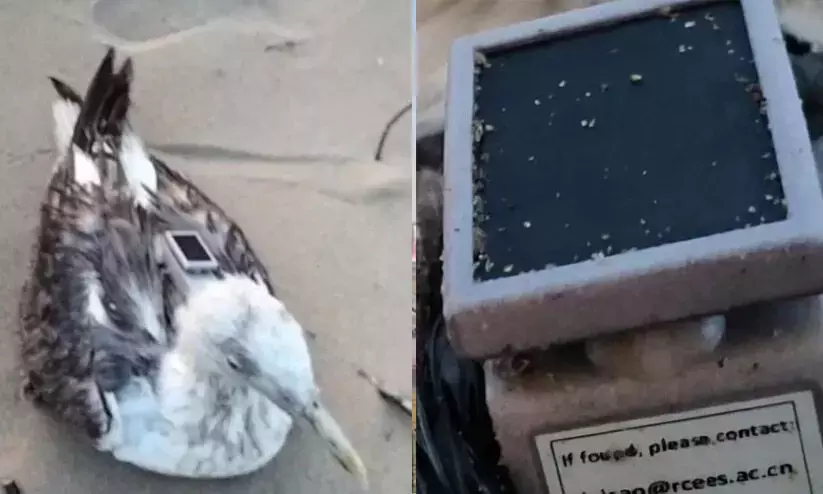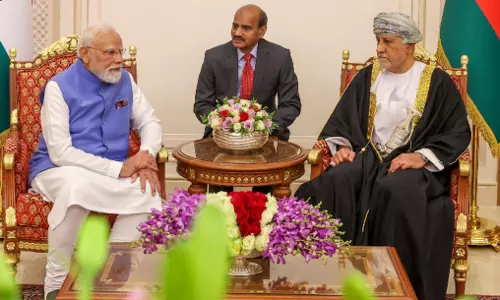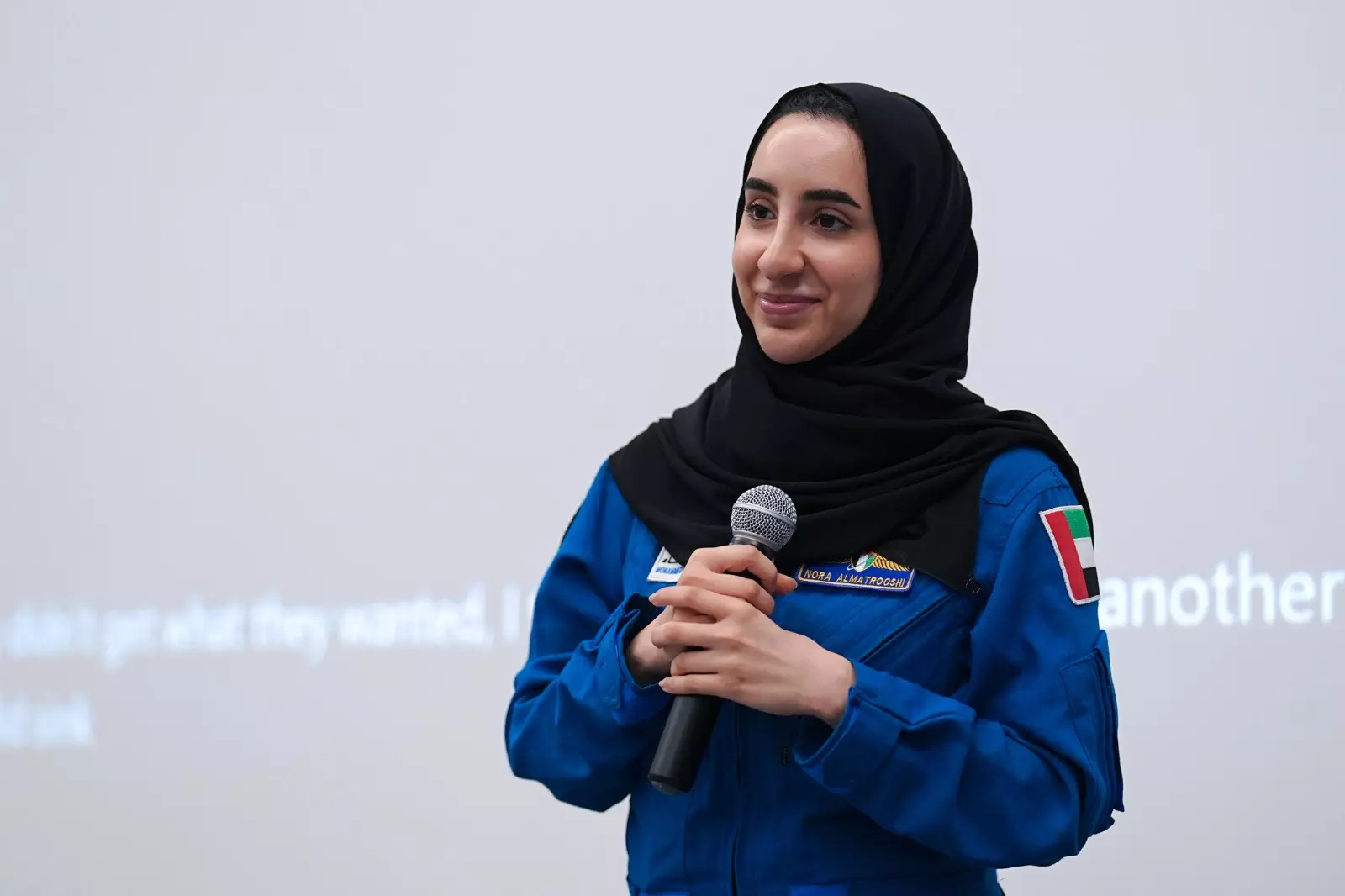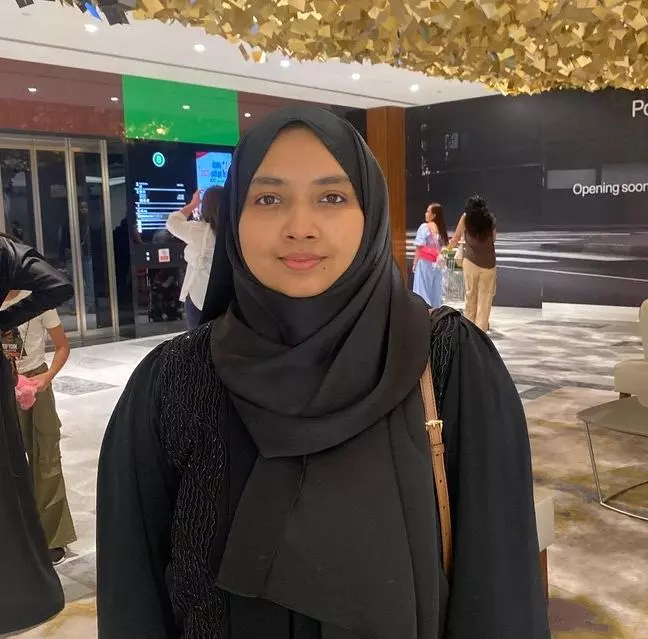
'The Moon is as close as your imagination', Noora Al Matrooshi on chasing her space dream
text_fieldsThe United Arab Emirates has advanced from designing satellites to launching astronauts, developing one of the world’s youngest yet fastest-growing space programmes. In 2021, it became the first Arab country and fifth worldwide to reach Mars with the Hope Probe. The UAE has since developed Earth-observation satellites, including MBZ-Sat and Etihad-SAT, and contributes to NASA’s lunar Gateway station.
The UAE’s space transformation journey began in 2006 when His Highness Sheikh Mohammed bin Rashid Al Maktoum, Vice President, Prime Minister and Ruler of Dubai, founded the Emirates Institution for Advanced Science and Technology (EIAST) to develop national expertise in satellite design. The institution later expanded into the Mohammed bin Rashid Space Centre in 2015. Since then, MBRSC has led missions, including the development of KhalifaSat and the Emirates Mars Mission, while also establishing the UAE Astronaut Programme.
MBRSC’s programme produced Major Hazzaa Al Mansoori, the first Emirati and Arab astronaut to reach the International Space Station, where he conducted 16 joint experiments. He was followed by Dr. Sultan Al Neyadi, who spent six months on the ISS (International Space Station) in the longest Arab space mission and became the first Arab astronaut to perform a spacewalk.
The astronaut corps also includes Nora Al Matrooshi, who became the first Arab woman astronaut. A mechanical engineer by background, she completed the training programme from NASA in 2024.
Five-year-old Nora once pretended to walk on the Moon during a kindergarten activity. Today, she is preparing for space missions that will take her beyond Earth's atmosphere.
We interviewed Al Matrooshi on the occasion of Emirati Women's Day, as the UAE launched its "Mother of the Nation 50:50 Vision". This 50-year roadmap aims to establish Emirati women as "global models of influence and inspiration".
On the occasion of Emirati Women’s Day this year, many pioneering Emirati women are being celebrated. Who among them has been your greatest inspiration?
Two women in my life have been a constant source of inspiration: my grandmother and my mother. My grandmother is a remarkable woman who has always been a strong advocate for education and equality. She encouraged her children to believe they were just as capable as anyone else, and that belief shaped my mother into the person she is today. My mother, in turn, has been a guiding force in my life, inspiring me to pursue my ambitions with determination and purpose. Together, they embody the values of resilience, strength, and empowerment, and I feel privileged to carry forward the legacy of their example.
Is it true that you decided to become an astronaut during a preschool activity simulating a lunar mission? How important do you think early educational experiences are in shaping career aspirations, particularly in STEM fields?
My first interest in space came during a kindergarten class where our teacher had us pretend that we were travelling to the surface of the Moon. That simple activity was powerful enough to capture my imagination and set me on a path where, even at that young age, I decided I wanted to become an astronaut.
I think experiences like these at an early stage are incredibly important. When children are encouraged to imagine, explore, and role-play, it not only nurtures curiosity but can also plant the seeds for lifelong passions. In STEM fields especially, these early encounters can make abstract concepts feel tangible and exciting, giving children the confidence to dream big and see themselves as future scientists, engineers, or even astronauts.
You nurtured your astronaut dream long before the UAE had a space program. What sustained your determination during those early years?
What sustained me was a combination of imagination and belief. From a young age, I enjoyed stargazing events and space lessons were always my favourite at school. I vividly imagined myself walking on the Moon and carried that dream forward, even when there was no space programme in the UAE. My determination was also shaped by the values instilled by our leadership. His Highness Sheikh Mohammed bin Rashid Al Maktoum has always been my role model, particularly his belief that the impossible is possible and that determination and persistence lead to success.
The UAE leadership has prioritised gender equality and created a strong culture of women empowerment across all sectors. How do you view this vision and its impact on your own career path?
This vision has been central to my journey. The UAE’s leadership has made it clear that women are vital contributors to every field, including advanced sciences and space exploration. At the Mohammed Bin Rashid Space Centre, women make up more than 50% of the workforce, and their role is instrumental in all our projects. For me personally, this culture of empowerment provided both the confidence and the opportunity to pursue my ambition of becoming an astronaut. It is also a reminder of my responsibility to inspire young Arab women and to elevate the name of my country globally, continuing the vision of our founding father, Sheikh Zayed bin Sultan Al Nahyan, who believed in raising the UAE flag high in the field of space exploration.
Having completed survival training in challenging environments, which personal qualities do you believe are most essential for astronauts?
Resilience, adaptability, and teamwork are essential. Survival training shows that challenges are opportunities to grow and improve. Adaptability matters because astronauts must operate effectively in unfamiliar and extreme conditions. Above all, teamwork is indispensable. Every mission is built on trust, collaboration, and the ability to work alongside colleagues from many cultures. Determination and persistence, values I hold strongly, are also qualities that sustain astronauts through the most demanding moments.
The UAE has invested significantly in its space program, from establishing MBRSC to the Hope Mars Mission. What do you see as the next major milestone for the UAE's space ambitions?
The UAE has made remarkable progress across a number of space projects, including satellite development, interplanetary exploration, and human spaceflight. Looking ahead, I see the UAE continuing to build capabilities, inspire youth, and contribute to global space science, keeping true to the vision of Sheikh Zayed and our leadership to push boundaries and raise the UAE’s profile in this vital field.
At GITEX Europe, you've mentioned that AI could monitor life-support systems and free up astronauts' time for experiments. How do you see AI transforming space mission operations in the near future?
AI will transform the way astronauts work in space. By monitoring life-support systems and taking over routine tasks, AI will allow us to focus more on scientific experiments and mission planning. In the future, AI could predict and prevent technical failures, assist with autonomous spacecraft navigation, and support decision-making during critical moments. It will act as an intelligent partner, extending our capabilities and making missions safer and more efficient.
For any young Arab woman astronaut, how far is the Moon to reach?
The Moon is as close as the strength of your imagination and determination. For me, it began when I was five years old, imagining myself walking on its surface, and today I have trained to undertake spaceflight missions.
The UAE was one of the first countries to sign the Artemis Accords, reflecting our firm commitment to international cooperation in space. We are also contributing with the development of the Crew and Science Airlock on the Gateway lunar space station. This spirit of collaboration, led by our government’s vision, continues to create opportunities not only for our astronauts but also for the global community, demonstrating that space exploration is most powerful when nations work together to achieve what was once thought impossible.
With the opportunities now available in the UAE, anything is within reach for the Arab men and women. It requires persistence, preparation, and the courage to take that first step, but it is absolutely possible.
What message would you like to share with young girls in the UAE and beyond, who aspire to become astronauts?
My message is to do what makes you happy and to pursue it with determination. If I was able to take the first steps toward becoming an astronaut, then so can you. Believe in your imagination, set your sights high, and prepare yourself with persistence and hard work. The UAE has shown that great ambitions can be achieved, and the world needs your courage, creativity, and contribution.
























